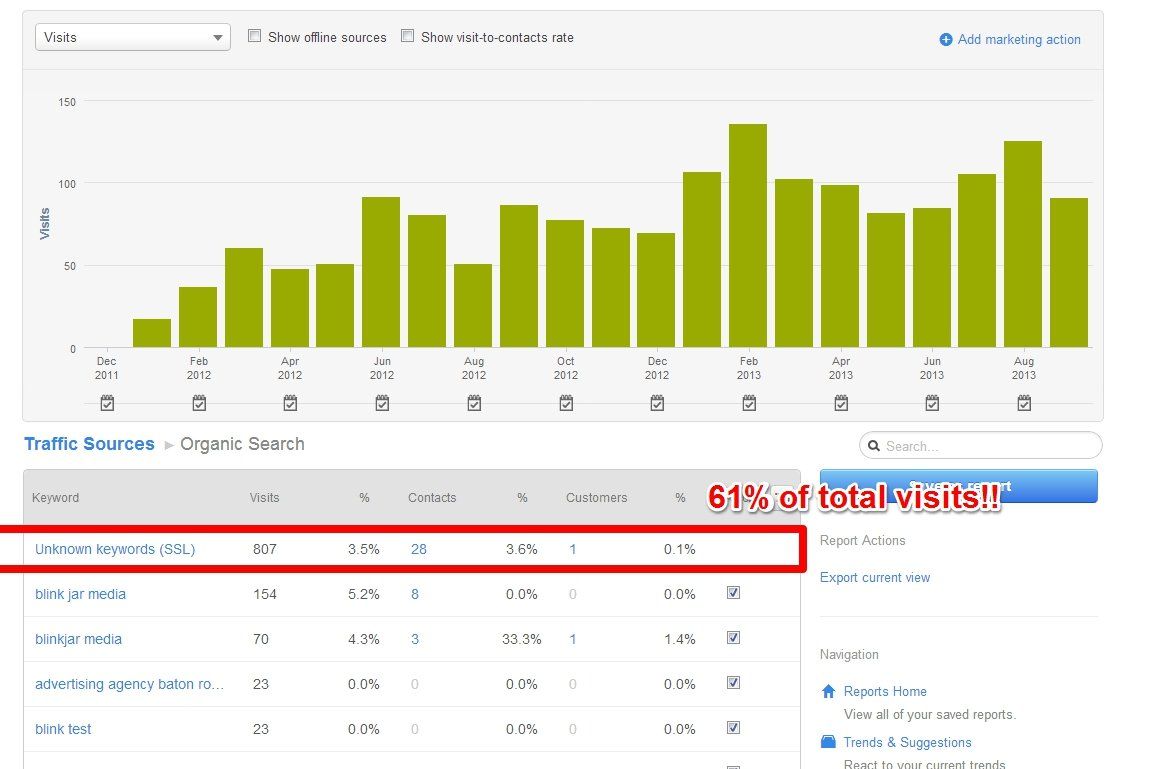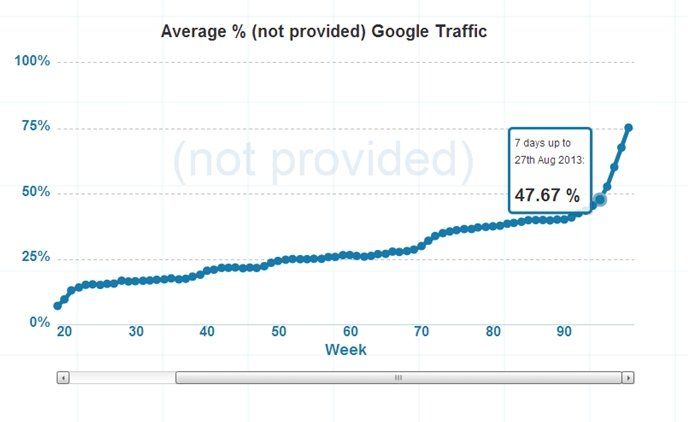Another Reason for Content Marketing
Yesterday, Search Engine Land reported that Google will be making a HUGE change to their reporting. No longer will Google report on keyword searches with the one exception of paid AdWords campaigns.
This is a massive blow to traditionalists SEO marketers. Why? With Google having the lion’s share of all organic search traffic (estimates range from 60-80%), their encryption of keywords and phrases means that marketers cannot see how their sites are being found and what keywords to use to best market to the potential customers and website viewers out in the world of cyberspace. Also, with organic search being approximately 50% of all traffic to websites, Google's change can impact lots of marketers!
In October 2011, Google announced the conversion to encryption for anyone using their platforms, Google+, Gmail, etc. They stated that they are now looking to bring this “protection” to all users. Many marketers echo a resounding, “WHY??”
Well, there is speculation that Google allowed the National Security Agency access to their information which Google has vehemently denied. This switch to total encryption would be a block to everyone, including the NSA, on user activity and keyword usage. Another theory on the table is that Google is looking to push their AdWords users, who pay for the sponsored sections on the top and right hand of Google search pages, as these keyword results will be the only ones accessible on the Google platform.
How Google Encryption Affects All of Us
Google’s initial encryption efforts in October 2011 were projected to affect about 10% of all searches. Well, this has been flying under the radar for a while, and some progressives like the team over at HubSpot have been keeping up with their encrypted searches as compared to their totals. In January 2013, they were at about 55% encrypted and have seen 4% increases every month.
BlinkJar has 61% of organic results currently encrypted (see the results below)!!
Another site that tracks the keyword encryption of 60 large websites, Not Provided Count, has shown astounding increases over the past 4 weeks in the chart below. The chart shows that on August 27, 2013, the total percentage of encrypted words was about 50%, and as of yesterday that number has jumped to 75%!!! Is Google ramping up for this total encryption? It certainly looks so. A sad, sad day for marketers. Or, is it?
It comes as no surprise to anyone involved in the world of inbound marketing that this is where Google was going. They have long been trying to eliminate ALL “black hat SEO” and old school methods meat to trick the Google algorithm systems. Too much poor user experience was created in this old world. I previously discussed how SEO has become a dirty word in the worlds of marketing for this very reason!!
So, Google has started to reward GOOD user experience. This is accomplished by providing quality content that consumers have asked for in their searches, generally by blogging and whitepaper/ebook creation. Google is proving that this is what they want, so move away from the keyword emphasis and move on over to CONTENT CREATION.
Marketers will have to use the most viewed pages of their sites in place of most frequently searched keyword phrases. What’s that? You don’t have many indexed pages? You haven’t allocated the time and energy to creating the content that your consumers are asking for? Well, this marketing world is changing, and it’s time to get cracking on that!
Page level tracking will be the new measure of marketing analytics for most who track online and marketing metrics. Yes, there will always be the Google Adwords results, but with 75%- 80% of Google users skipping over those ads completely. Most users have become numb to the paid results and don’t even consider them as viable answers to their searches. Having significant quality content, particularly in blogs (so that websites don’t become cluttered and un-navigable), will be the best way of determining how search users are coming in to your site and information.
BlinkJar utilizes the marketing analytics tool in HubSpot’s software which enables us to determine what pages are producing results for our clients. We may not be able to see which keywords are producing from Google anymore, but from what Google is indicating, they don’t want us to see them. Google wants the whole keyword emphasis to die out and for content to be the focus. Content creation and purposeful implementation to our client’s websites is what we do every day and have been doing since our inception in late 2011. We can help your company too.










